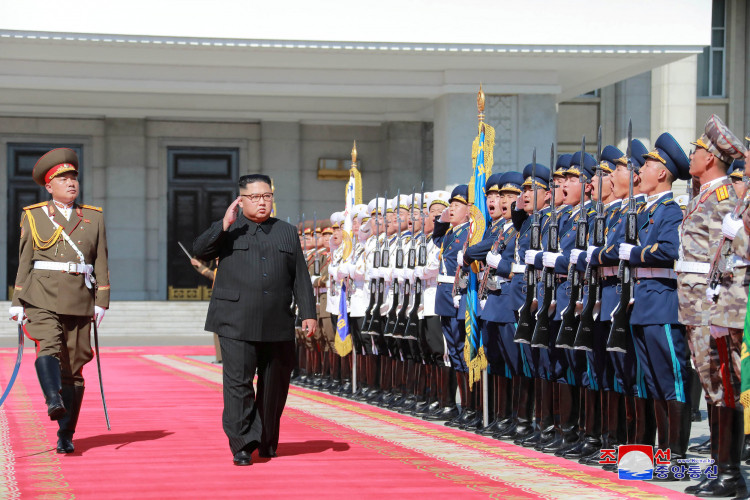North Korea has been keener than ever to show its willingness in conforming to international demands whereby it must completely denuclearize the country and thus free the Korean Peninsula from threats of nuclear war.
NoKor's own Kim Jong-Un even guarantees the fulfillment of such agreements that were made earlier when he met, for the first time, his Western counterpart, US President Donald Trump in Singapore, June last year.
The jovial atmosphere shared between Pyongyang and Washington even extends to a proposed second meeting of the two leaders in the US capital, an earlier report from Business Times said.
As promised, the Kim regime finally allowed the international media and nuclear weapons investigators to oversee the supposed dismantling of NoKor's test sites and facilities.
However, a report from CNN cited a series of commercial satellite photos which, to the shock of many, reveals what appears to be an activity at an unidentified North Korean missile base.
A closer look at the details gave the impression that the Hermit Kingdom has continued, if not, expanded its key long-range ballistic missile weapons system located in the country's mountainous interior.
Middlebury Institute of International Studies at Monterey, a major research institute closely following the denuclearization progress in NoKor, confirmed that the base remains active. Moreover, images indicate that they are building a huge underground facility which started in 2017 and is still on-going, as of August this year.
As stipulated by the news agency, it appears that Kim's diplomatic talks with Trump won't hold back the Asian nation from pursuing its goal to enrich its nuclear arsenal.
Several political analysts and watchers have been wary over Kim's charade of seemingly dismantling a site on one side of the country, but at the same time, rapidly building a new one on the other side.
A Difficult Proposition
According to the South China Morning Post, North Korea's so-called byungjin policy revolves around the intertwining development of nuclear and economic power in the country. This political agenda suggests that Korean People's Army should, at the very least, be prioritized in the affairs of state as well as the allocation of resources. This primarily makes the denuclearization process a difficult thing to push through.
Secondly, as SCMP pointed out, there's the issue of UN Security Council's stagnant economic sanctions. This put North Korea at a disadvantage economically in the international market.
Pyongyang demanded earlier for the sanctions to be lifted first before it will fully disarm its nuke weapons.






